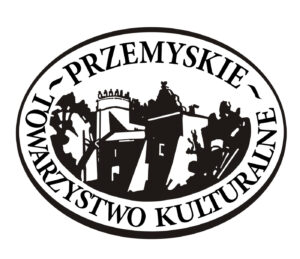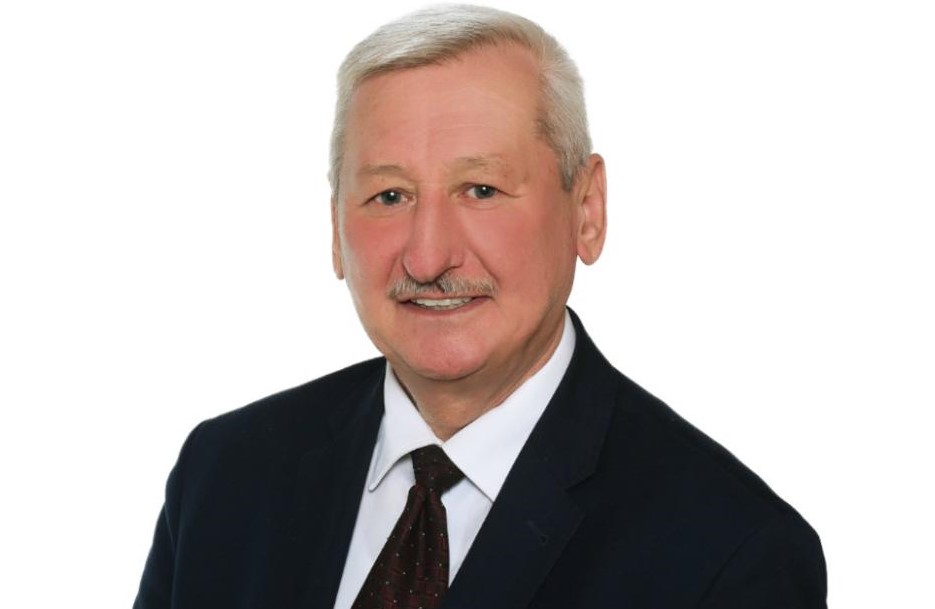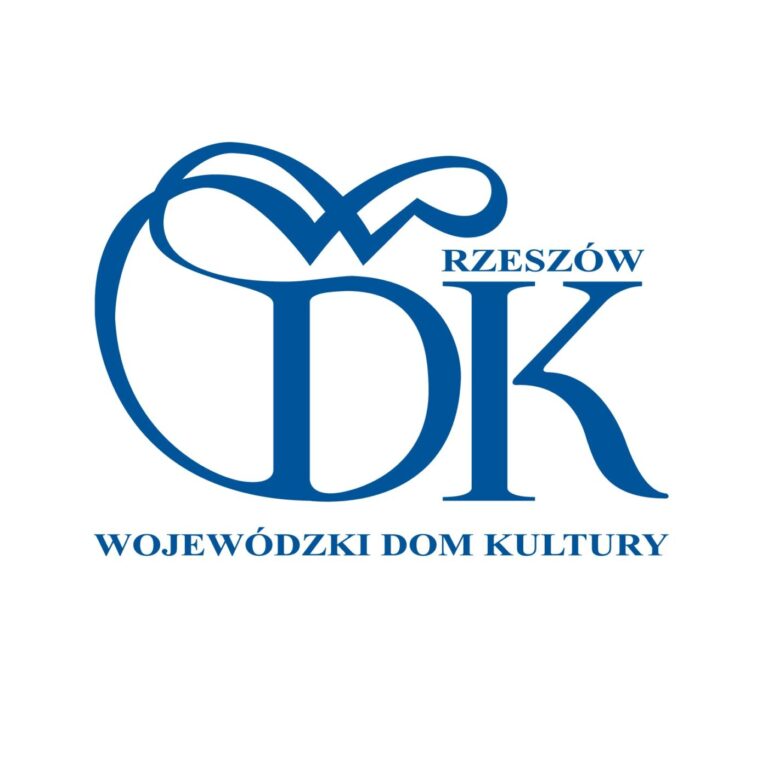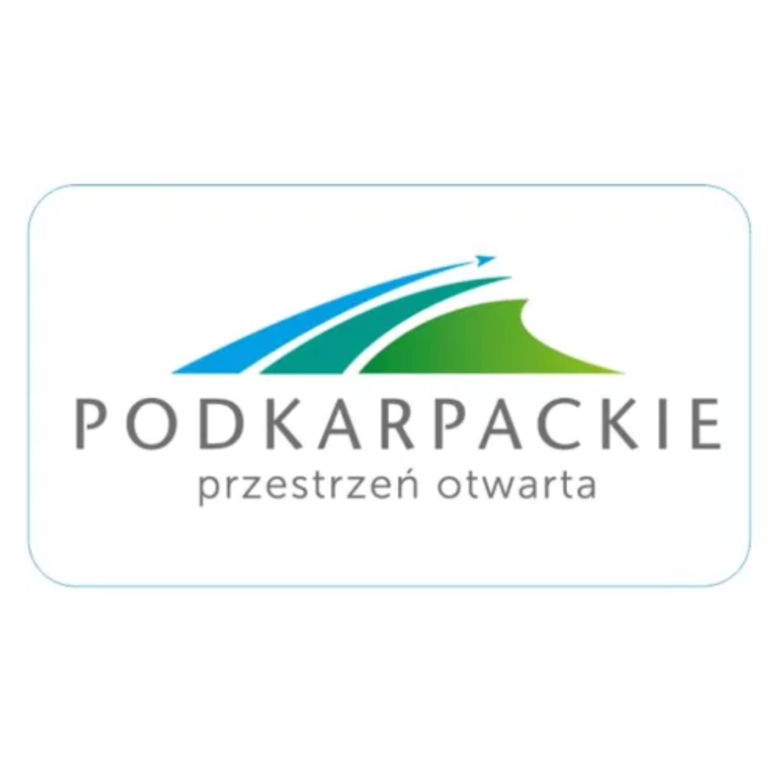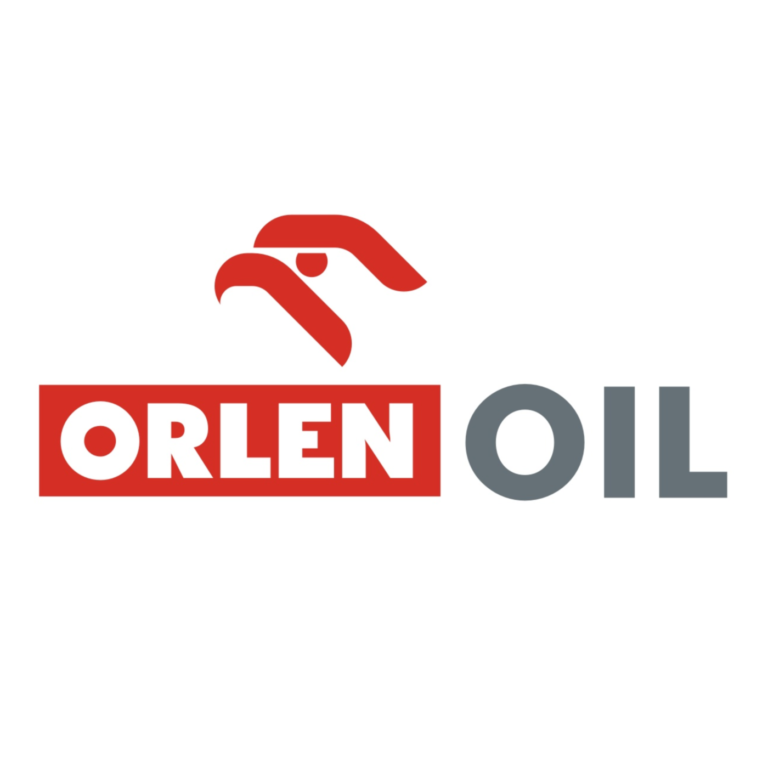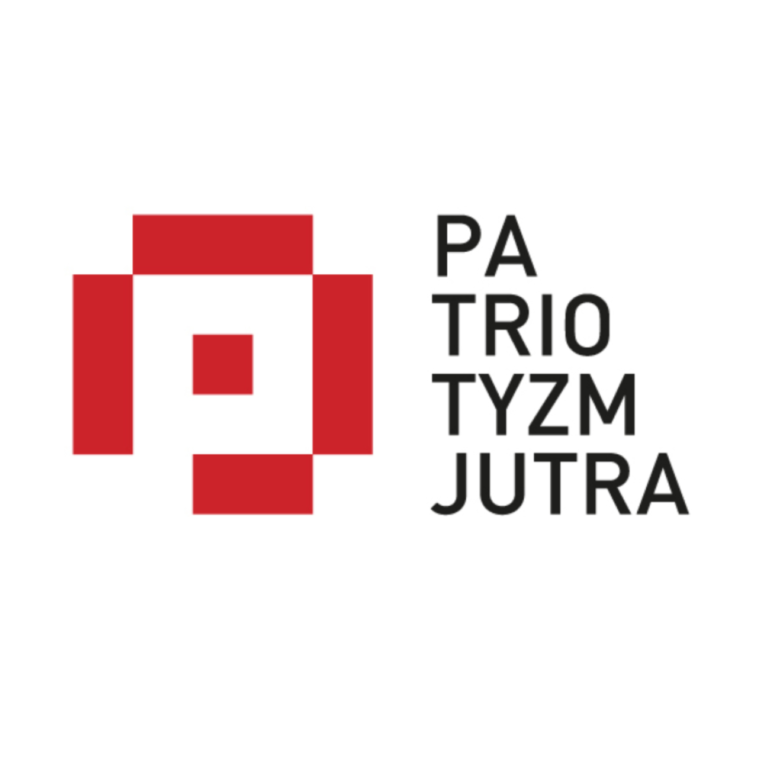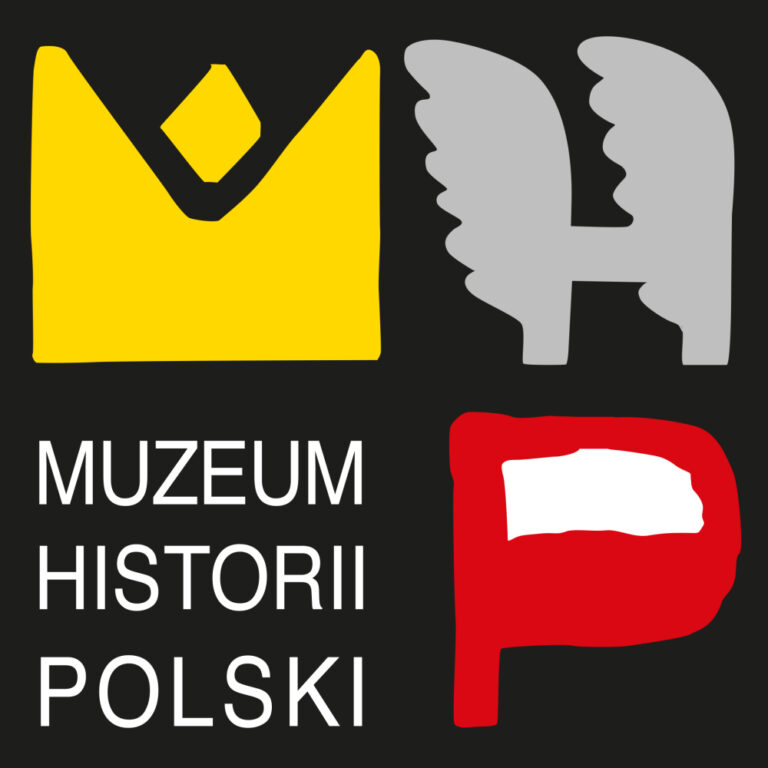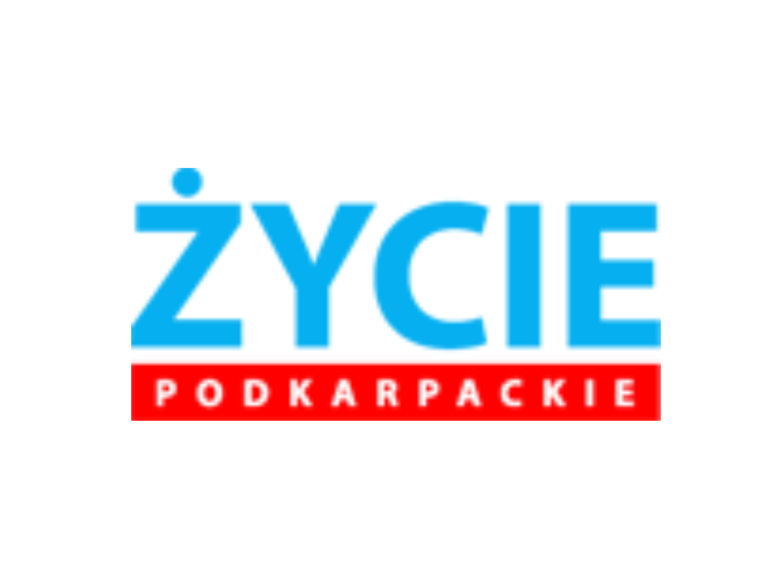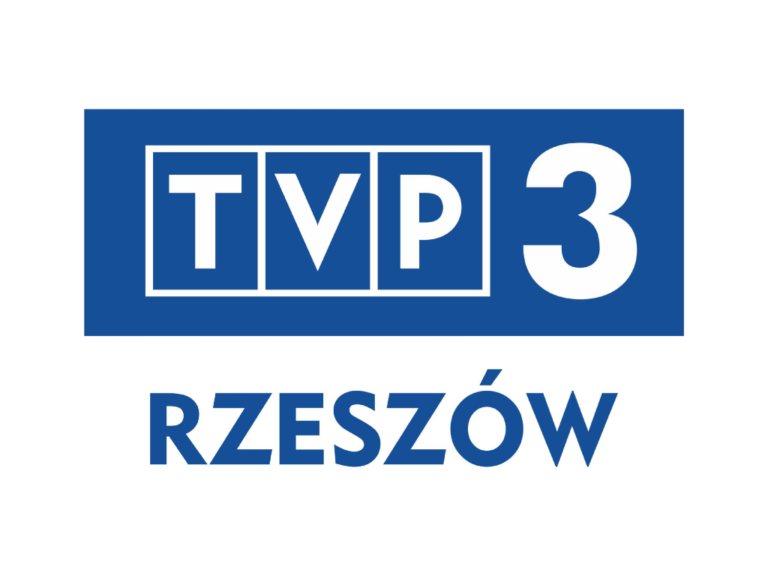Interviewees: Adam Pawluś - Jasielsk starost, Marek Kuchcinski, Piotr Pilch, Szymon Kuchcinski
PP: Please tell us some of your memories, from real life, about the years of transition.
AP: These were very interesting years. I had such an adventure last year, because the municipality of Jaslo signed a cooperation agreement with Romania and they had a conference on the changes in Europe. From the Middle Ages up to the present day. And they were looking for some man to talk about these transformations in the 1980s. When they asked me, I went there. There was a general sitting there, who Caucescu (secretary general of the Romanian Communist Party) was closing. I spoke in Polish and had a short speech prepared. On the subject of these transformations and experiences, it was organized a bit like that on crazy papers. Well, and I was offered to speak in English. There were no translators, I am self-taught. I had no money to learn the language. My father was a farmer, a soldier of the Home Army, and he never disgraced himself by working for the Communists, unlike me. Because when I would say to him, "You didn't earn anything," he would answer me: "Not a single day did I work for the Communists, and you were educated and worked for the Communists." He considered it a disgrace. Well, because I educated myself as a lawyer and had to work later.
Marek Kuchcinski: I didn't work a day during communism either. I'm a pensioner, 5 years were taken from my pension, but I said that I will run my own horticultural farm, and I won't contract at the buyers. I will go to the market alone.
AP: And I had a farm, inherited from my grandmother. As I was in prison, I got credit for my pension like a farmer. We paid premiums, I already paid premiums in college. When I had a field, I had to pay.
MK: I did not have contracting, I did not have to pay premiums.
AP: But I had a field, a farm, and I had to pay property tax to the municipality. But back then there were no KRUS contributions.
MK: But I didn't own the farm, my dad did, and I was his employee.
AP: And I was the owner of the farm. During communism I didn't have ration cards (food and commodity cards) and my shoe cards were lost, because I was in prison. And for alcohol they were also lost to me. I went to jail because I wrote a proclamation calling for a general strike on December 13, 1981. The office was open, we met. Solidarity office, because they dealt with (SB) offices in big cities, but in such a Jaslo they were not interested. I wrote the text, of course the secretary duplicated it, the guys then scattered it, it got somewhere, because the secretary did not destroy this manuscript of mine. Then, of course, when they entered the delegation, they took some of the materials, the duplicators were taken away, a lot of equipment was carried away, but I don't know why this manuscript of mine stayed there. Samples of the curriculum vitae were taken, because it had to be written by hand. The curriculum vitae had to be written for the file at the company where I worked as a legal clerk, a young lawyer. Of course, the writing was compared and I was presented with an "offer not to refuse," that is, an offer to cooperate. I refused and was convicted. It was the officer who said: "You will go to jail, if you want to be a hero, you will be a hero or sign one receipt. Either we'll sit and drink vodka from a thin glass, chew on ham, or you'll be a stupid hero." I replied that I don't have to be a hero, but I have to survive somehow. And my wife, a Cracovian, came to me to Jaslo from an intelligentsia family, but when she was left alone with three children, she was not in such a simple situation. My father took her to the countryside, where she had her produce. When he came to see me, he said: "Nothing is happening to you here, sit." My mother said they would kill me, kill me, but my father said, "Nothing is happening, there is no shortage of food." I was imprisoned first in Załęż and then in Hrubieszów. The prison was right on the border, on the Bug River itself, 64 Nowa Street, by the wide track. As we were already sitting in the Hrubieszow prison, the pavilion was prepared for political prisoners, and next to it was a pavilion where bandits with heavy sentences were sitting. I traded something with them there, gave them a couple of smokes and said "guys, a couple of smokes I'll give you, please cut my breeches nicely". After an intermediate fashion (in Russian: the last shout of fashion). There in prison there is also money, trading. I had a sentence of three years, served 14 months. I got out for a break in my sentence due to health reasons. There was a rather pleasant feldsher who urged me to get treatment. I had a hell of a lot of these diseases. Meanwhile, he was taking me to the hospital in Hrubieszow. His wife was a prosecutor. But it was good, because I could take a ride and see the city from that van. There was always a militia car driving behind us, a nyska. There we drank coffee, in that hospital, he did some tests on me. But a prison is a prison. There are always some strikes. Zygmunt Berdychowski came back from a walk-in and says: "Who zapier... me chocolates! These chocolates were brought to me by my sisters, and it was a scarce commodity!!!" Berdychowski was sitting with us. I do not know if the guards took or not, and he says: "Give me the chocolates." Well, the guards slapped him down... Sigmund beat the guards. Witnesses testify that he beat the officers on duty. Well, and of course the indictment prepared. So we, of course, hunger strike in protest, towels on the cage, chanting, food in the corridor. Nothing to eat. Such strikes were non-stop. I already had one trial scheduled in Lublin. I was also such a protégé, I had colleagues after law school. Jurek Rusin comes in and the keys say, "Please stand up, the penitentiary judge is entering." And it is Jurek Rusin who enters, looks at me and says: "What are you doing here?" and I to him "And what are you doing here!". And this is a colleague from college, we drank vodka more than once! He married the daughter of a judge from Zamosc well and was already making a career, and I was convicted by the military garrison court in Rzeszow. Judge Przyboś, Warsaw Military District Court in Rzeszow. Colonel Przyboś. And the prosecutor was a prosecutor from Jaslo, who is still alive, Staszek Radzik. We knew each other, we even drank vodka. There were not many of these lawyers after the UJ.
MK: How many I counted those SBs in the dormitory. There was one in every room, some lived on the Podzamcze. They were constantly so sad.
AP: From Przemyśl, Marek Kudlinski and Wojtek Kłysz sat with me. They had sentences of three years each, although Kłysz probably got four. They were also sitting for leading the December 13 strike.
MK: These were brave guys. They came to the mayor of the city of Przemysl or to the governor and said they were declaring a strike and needed blankets.
AP: There were situations that to us the head of Magnowski came to the workplace and said: "Mr. Adam, what do you mean, you want to hang us?" Because those ubeki were putting them up like that. And I answer him, "What are you, man, we're not going to hang you, I can drink vodka with you. I'm afraid to kill a chicken, and I'm supposed to hang you!" In Hrubieszow there was such an officer, his name was Giraffeaur (giraffe) from French. They called him a victim of the Napoleonic war, that if any Napoleonic soldier impregnates some peasant girl, he is the seed of that. He was the head of prison security, and he would ask us this question: "Do you know where these tracks lead?" Of course, outside the window were these wide tracks, they led to Ukraine. We say (in jest, of course) that we do not know where. And he answered that to Siberia. He was so excited that he could threaten us, but sometimes we had access to a TV and sometimes we received Soviet TV. The windows of the prison were some overlooking the city, and others overlooking the Bug River and the Ukrainian side. We could see the land of Sokal and huge piles of coal.
MK: And when you left, how did you assess the situation? Did you return to Jaslo?
AP: I returned to the countryside to my father. Here I had no work. Then I took care of the orchard and on the land I farmed. What was there to do, I had no cards, I only got some allowances, and in the block of flats you would have to pay rent. I had a field and in 1984 I sold it. I had nothing to live on, and I had to sell the family field to have food ration cards and to have an allowance. I had three children, then two more arrived, also the burden was heavy. Then I started working at the PKP, but I didn't want to learn to be a duty officer, because I knew that a railroader would be none of me. I looked for another job in my profession, but on the railroad I worked as a switchman. Most of the time I took time off and went to Warsaw to get the "blotter." I traveled by train, and the railroaders had blocks of free tickets. At the central station, I would get on the train with a bag, and as I entered, I would show this ticket block and ask if I would write out a ticket. The conductor always replied that no. I never wrote out a single ticket. I brought a lot of materials from Warsaw, mostly I took books, stamps and newsletters of "Mazovia" and other regions. I also had a few points in Cracow, and I cooperated with the Romaszewski family. In Cracow I also cooperated with a professor, Wiesiek Zablocki, who published "Paragraf". I provided him with data there. I also cooperated with Mietek Gil, because we were in Malopolska, but I also held talks to create one region in Rzeszow with Marek Kopaczewski. But of course Przemyśl was against it, Tarnobrzeg was against it, Krosno was against it, and we then went to Malopolska.
MK: Who was the head of the district board in Krosno at the time?
AP: Zawojski. Blaszko was already underground.
SK: Do you remember any action from the underground?
AP: We had many ideas, for example, on the SB holiday we organized a broadcast. We didn't have our own radio, it came, made a broadcast and went. In the Romaszewski's book are my memories. The book came out that year. There is a small chapter there that I wrote. Of such most amusing episodes - once sociology was taught at the Jagiellonian University by Marek Waldenberg. He was the director of the Institute of Political Science. On Ziaja Street, right next to the main building of the university, Marek Waldenberg had a specialty on the export of revolutions, he wrote items. I used to go with a blotter, I had a whole bag. There were a lot of people in the central station, and the bag was very stuffed. I saw that there was Marek Waldenberg and he was talking to someone. I went up to him and overheard the conversation. He was saying that he was returning from Afghanistan. It was 1984 and I immediately thought it would be better to hide the "blotter" with him. I stepped back and watched where he went. Well, because I, as a railroader, did not have to have a seat on the train, so Marek went to the compartment and I was already chatting near that compartment of his with a bag full of "blotting paper." He entered the compartment, and I say: 'Hello, Professor, can I sit next to you, because the whole train is stuffed, including the corridor.' He says: "You're very welcome." And I put this "blotter" next to him and was reassured that he was in a safe place. He came out to me and asks how I'm doing. I replied that I just got out of prison. And he asks if I was there for practice. And I said: "No, I was in prison as a prisoner." He tells me: "Well, then something your career has gone wrong." I puzzled: "Professor, how about the theory of exporting the revolution, because it's not working out very well in Afghanistan." The professor replies that he was recently in West Germany, did a lecture and there were a lot of listeners. And I answered him: "They are listening, but maybe they don't know what the revolution is." With that, I arrived in Krakow and changed trains to Tarnów. It was already late. I took the opportunity to Pilsen well and arrived....
AP: Now I will tell you about happiness. It was the end of winter, the beginning of spring. Cold as hell, but I was lucky. There was an officer in the prison, a second lieutenant. They called him "Shrama", because he had shramas. Prisoners, if they wanted to tease someone, they would put razor blades in the food and frequent him. We had the cells boarded up and the windows taped up, but during the storm we broke all those windows and said it was the storm that shattered them. But I moved to a new cell with one more Janusz, who lives in Rzeszow, and someone else. In this new cell, I say like this: "Let's take these blintzes, we'll put them on the basket so we can have light. And we took down these blindy.
MK: Now tell me how it was that you as mayor, and Kazik Poniatowski was a senator.
AP: He is from Lomza, and got married in Jaslo. Kazek was in Solidarity all the time, but Bogdan Rzonca can tell more about it. He is a historian, has a good language and could tell the story.
SK: As you now recall all that has happened, which initiative do you think was the most key, which one is now seeing the greatest impact?
MK: In public activities present or underground? Accomplished or planned and undone?
SK: In public activities, such and such.
AP: I don't do big projects, but such real ones, and I succeed. When I returned from the United States in 2006 and was offered a seat on the district board, I focused on these investments. By coincidence, I once met General Czekar at maneuvers on the Solina River. I was walking one day in the Sejm or elsewhere in Warsaw and met him and learned that he had become head of the Silesian district, the military district. I congratulated him on such an important mission, and he tells me so: "And what can I help you Adam?" I think to myself, "And what can you help me in this military?" and I tell him that maybe we could build some bridges? He answered me that on Monday a colonel, the commander of the sappers from Nisk, would come to see me. I thought this was some kind of joke, and on Monday at 6 a.m. he (the colonel) calls me that he has received an order and is at my disposal, at six in the morning! I dressed under a tie, shoes polished and we talk. And he says to me: "Where are the facilities we are supposed to do?" I think to myself, where are the facilities and I say, "We'll see. We came to such a place, which is called Radosc. He went under this bridge, I was a full-time board member, and he says to me: "Mr. Starost, you will go to jail!" I ask him why. He replies that the bridge keys and that it will collapse, and you do nothing? And indeed I went under that bridge at the time in my flip-flops, and there was keyboarding, that is, there was a wooden support, there were metal girders and it was already a bit rotten, one was higher and the other lower, and there were buses with children going there, the creek may not have been big, but it was quite deep. Then the first decision was made that we were doing a bridge involving the military. There was the problem of how to bring it all into compliance with the regulations. That is, the Law on Public Procurement, after all, the military is not involved in such projects, the building permit, etc. They, however, already had some practice. We came to an agreement with the municipality, it was the municipality of Debowiec, that they would take the army for maintenance, gave the army a people's house for housing, arranged for them to eat, electricity, and they would provide labor for it. They took down that bridge, killed the piles and prepared the whole structure for a new one. And that's how my whole adventure with bridges began, it was my first bridge. And it started with a simple conversation: "How can I help you?" I think to myself, and what can you help me in the army, I've never been in the army, I won't go to the army. Well, but when there were those maneuvers, we helped them in those maneuvers, then how was the government administration, and he remembered that. We were friendly to the army and they were friendly to us too, and that's how it started. We built that one bridge, then another, then another and another. We built such a large bridge of a hundred or so meters, in Kołaczyce, where people waited, and it was supposedly already there under the C.K. of Austria, the Austro-Hungarian Empire, wooden, burned down during the First World War and was not there for so many years. There was a Speaker Madej to the Viennese Parliament (I was at his grave) and he always promised to make this bridge.
MK: Joseph or John?
AP: I don't remember, in any case I was at his grave in Brzyski. And he promised to make this bridge, and he always won the elections because of this promise.
MK: And he never made it!
AP: I started to build this bridge with this army and, of course, in the District Council there was such a councilman who reported to the prosecutor's office that Pawluś was building a bridge without a building permit. Górczyk's name was, already of sacred memory.
MK: Kaziu Górczyk? Something like that!
AP: Yes, Kaziu Górczyk reported on me.
MK: Late MP.
AP: Earlier MP, but he betrayed the PC (Accord of the Center), went with the left and so on, but on his obituary it said that he only went with the right, which was untrue. I did not go to his funeral. I knew his mother very well, I helped them, but it didn't matter. He denounced me and attacked me that we were making a bridge without a building permit. I, of course, replied to the Council that I was a lawyer and realized what was going on. The military operates under different rules, the military does not operate under the construction law, as we see today in Ukraine, that the Russians dismantle buildings, airports, infrastructure and do not ask the administration for a construction permit. In the same way, they build crossings and don't ask for permission. I'm saying that the military operates under different rules, the military exercises and we create conditions for the Polish Army to exercise. We will adopt the results of these exercises for a building permit if the bridge works out for them, and if it doesn't, we run the risk of losing money. Of course, everything was controlled by the designers and the whole procedure of driving these piles (pipes) into the ground, then it was poured concrete, welded. And we were already doing the pavement through a tender, a normal public procurement by a construction company. But the supports were made by the army. This was a great achievement, and I think it was a good action and brought positive results.
One day, before the elections, we went with Bogdan Rzonca and we were standing on this bridge almost ready, and a man came. Bogdan asks: "And do you know who made this bridge? He answers: Er, we don't know, I think Salachova."
MK: Who?
AP: Salachowa, that is, the mayor, and later the lady mayor, because Kołaczyce was granted city rights. Later Bogdan says to the man: Do you see? That's how people appreciate you, you harangue and do nothing propaganda. That's why we also do a lot as Law and Justice, and we have to expect that people don't appreciate it.
MK: Unless they find out and remember it, they will manage to put it in their memory permanently, who did it.
AP: Unfortunately, but maybe I'll talk about one more thing from the past. For example, Romaszewski organized the Committee for the Defense of Human Rights and a special fund to help, because at that time the communists introduced a very restrictive law, that is, a misdemeanor college, that is, a kind of court, that we would gather here in three Ormists and we would judge and pass judgment on misdemeanors. For such materials as leaflets, if you carried them, you could lose your apartment, your car. And Romaszewski then organized a fund, got an award (I think it was called Aurora, from some foundation in America) and also put that money into a relief fund. This changed the way of thinking. Just as Gorbachev was about to arrive, a strike broke out at the Stalowa Wola Steelworks. We then organized collections in churches for this strike fund. The workers knew that if they lost their jobs, they would get money, it was a big help for them. In the same way, I knew that if they locked me out, someone would come and bring money to my wife, help my family. This has an incredible impact. And today, as you observe that, the soldiers in Ukraine who go and fight the Russians, they are aware that their children and wives are in Poland and they are safe. It has an incredible effect on their morale. That's the feeling, I go and shoot, I might get killed. But the Poles took my wife, my children and they have a chance to survive. This is extremely important.
We arranged a job for such a Ukrainian woman, she works in the hospital, even a few people work there. She is from the Crooked Horn, she came with two children, with practically nothing. She worked in a bank in Ukraine, a young person, educated, and I tell her so: "You'll go work in the kitchen, and if you learn the language, maybe you'll go back to the bank, or maybe you'll go back to Ukraine." She replies that she wants any job and works today. Crooked Horn is almost a front line, she has contacts with her family, and is here with her children. It's very important to her family that they are safe here. Many Ukrainians went to the west, to England, because there are better wages there, and here you can earn minimum wage, unless one is a professional. I, when I was building the bridge in Przysieki, there were a lot of Ukrainians, good professionals, and they built the bridge, the whole structure starting from concreting. So it's very important and you have to remember that, there was a context that when I was in prison and my father came and said: "Nothing is happening to you, then sit. There's no shortage of food in the countryside, there's milk, cheese, eggs, I'll kill a chicken or a pig. No problem." And in the same way, the funds from the fund that Zbigniew Romaszewski created had an incredible impact on people from the underground, who took risks, after all, even people died. Przemyk and many others were murdered, Father Jerzy Popieluszko, etc. The feeling that someone would defend us, someone would write about us, Radio Free Europe would talk about us. It was very important psychologically that we would not just be buried in the ground and no one would remember us. And today in Ukraine it's the same thing, it's very important.
SK: Could you tell us your impressions of your first trip abroad? It was two completely different worlds, what was that first trip like, maybe you have some memories?
AP: That first trip, when I went abroad, I worked very hard. I wanted to earn $10,000, because I had a small apartment, five children and it was not easy to live. And $10,000 was a huge amount of money.
MK: Monthly or annually?
AP: I do not know, I wanted to bring that much, because it would be enough to buy an apartment. Well, but Balcerowicz came and $10,000 was nothing. I left too late, and before that I didn't get a passport.
PP: And in what year did you leave?
AP: September 13, 1989 to New York. There I started doing asbestos courses, because my cousin worked as a "supervisor" on asbestos projects. You could make very big money on these asbestos projects. I did all the licenses. I worked in New York for a pittance, but when I later saw the things I had done, I laughed: "That's my wall."
SK: And did you meet any Poles there by the way?
AP: Of course! I did demonstrations on Fifth Avenue in defense of Television Trwam. Father Tadeusz Rydzyk probably doesn't know it, but Piotr Babinetz got me such leaflets. I think it was 2011 or 2012. I had this banner, I spent $300 on it, I recruited some Poles and we had this inscription on one side: "Free Speech for TV Trwam in Poland," and on the other side it said "Wake up Poland." And we were walking down Fifth Avenue during the Pulaski parade and I think there were some Ubekists. They shouted "Kur..., buy yourself an alarm clock and wake up yourself," and they jumped at us with their fists. Some highlanders came and there was a near brawl. Later the highlanders took pictures with us, we were continually stopped by some young people, they joined in. Later crowds were already walking with us with this banner. And it only cost $300. What was $300. Later Piotr Babinetz arranged for some materials, factually written in English, and I distributed it and published it.
MK: And he was also in the United States?
AP: No, I just corresponded with him. He sent me the materials or I came and took them. It was in defense of TV Trwam, so that they could get on the terrestrial TV multiplex. Later they succeeded.
PP: And when you went to the States, was it available "out of the box", or is there a story behind it that you had to poke around?
AP: I knew Father Jancarz well. He invited the consul and says so: "I guess you'll give these visas to the guys, right?"
MK: Well, yes, at that time a visa was required to enter the States.
AP: From my side, there was no threat to America that I would make a neo-commune or something. After the overthrow of the Olszewski government, we set up such a committee, the "Polish Action Comitee," with Jurek Prus, Andrzej Rozpłochowski and others, among others, they are still on the committee and active today. We organized demonstrations at the Polish consulate for the overthrow of the Olszewski government. I was in such an environment. Jurek Prus was the editor-in-chief of the New York Journal, because there was a branch of the Chicago Journal. And he was the first to publish Tyminski's black file. He went to Canada, copied the receipts of Baek and he was the first to publish it in New York. He almost died later because of it, they wanted to kill him. Jurek Prus also told that Mietek Wachowski smuggled some herbs on a yacht, he had left money, and the owner of this Chicago journal was Kuchejda from what I remember. Mietek brought 200 thousand dollars and Kuchejda changed his mind, he no longer attacked Walesa.
MK: Staszek Kusinski worked for the New York Journal or another?
AP: "New Journal" - it was a kind of Freedom Union a bit.
MK: Yes? "New Journal," there used to be "Trade Unionist."
AP: "Trade Unionist" was the old Polonia.
MK: What newspaper did I write reports from Przemysl for? In the late 1980s? It was the one where Staszek Kusiński from Przemyśl was.
AP: I don't know, but the editor-in-chief of the "New Journal" was Wierzbiański, he was also the owner, and he was not so radical. In Chicago, there was the "Union Journal" and the "Chicago Journal."
MK: I don't remember anymore, but I probably wrote about 5-6 such reports from Przemysl. Do you know Jacek Borzecki? He was, I think, in "Związkowiec", even was editor-in-chief for a short time, and now lives in Przemysl.
PP: You left for the States in 1989, did you go somewhere abroad before that? To what country, probably from the Eastern Bloc, maybe the USSR, Georgia or East Germany?
AP: Yes, during my studies I traveled, I was, for example, once in Berlin. That was before 1980, because you could go to the Demoluds on proof.
MK: For example, to Hungary, I went once in 1978.
AP: I traveled to Romania. If you had such a stamp in the proof, you could drive on the proof. Only you still had to have funds for exchange. There were such currencies for the booklet, there was not much there.
SK: What are your interests? Do you have any break from these difficult political topics, from all this?
AP: I'm from the countryside, from a young child I had to work in the fields, although I didn't like it. But I still have a passion today, because I always have tomatoes near the house, lots of flowers. I also had an episode in America that I planted a lot of trees and did various projects. When I had a little daughter, we would go around the parks and playgrounds and watch. When I came back in 2006, inspired by America, I made an Environmental Education Park in Folush. It was such a first park, done in cooperation with the Bolestraszyce Arboretum, they have various plants there for conservation purposes. The old Mr. Professor Piórecki traveled to different parks, went to the Romanian Gorgany mountains and brought and collected these plants. I had a good relationship with him because my dad was also involved in horticulture. My dad always said that you have to have such a gift in your hands that if you touch the plants, they grow, and this is true. I inherited such a gift a bit from my dad, and when I plant plants, they grow. These plants what are here (Environmental Education Center in Ożenna), they are also planted by me from the Arboretum in Bolestraszyce.
MK: I confirm this as a gardener.
AP: My dad, for example, grafted apple, pear, plum and other plants and wrote down in his notebook when he saw fruit he didn't have. He would write it down for himself, ride his bike there in the winter, cut the scions and hide them in the cellar, and graft them in the spring. Later, when he was in his 80s, he would say to me that the plants felt that he didn't have the energy anymore and wouldn't graft them, because they wouldn't take. But I think it's more like he couldn't see well anymore and didn't do the grafting so thoroughly and stopped it. He always said that you have to have good energy for the plants to feel it and grow. And there is some truth in that. I planted a lot of plants. In America, but also in Poland. I have always been involved with plants.
SK: It's all always connected, I think that in the case of your work it's the same with plants as with projects. Your projects and initiatives also need this energy.
AP: Yes, but you also need to meet the right people at the right time, just like I met Marshal Kuchcinski in Bardejov. We were driving and I say to him like this: "Mr. Marshal, let's stop here. We stopped in front of a crumbling building (now the Center for Ecological Education in Ożenna, where the talk is held). And later when I went to the National Fund, I tell them that Marshal Kuchcinski supports this project, and that was the argument. But there was no lie in it, because I asked him: "Mr. Speaker, do you support this project? Did you?"
MK: Yes, it was. The idea was very good.
AP: And so it was, and I used it deliberately, and why not? One of the most important people in the state was here, saw it and said he supported it. There was no lie in that. Later I wondered, because I had information that they want to change the rules of call for road projects, and we want to do a kilometer of road in New Zmigrod - a provincial road. We as a district prepare the project, of course the province will pay for it later. But if we prepare everything, the province doesn't have to deal with it, it will pay the bill that we will prepare for them. But someone has to do it all, think about how to design it and how to do it. That's a lot of work. Wojciech Buczek says he knows New Zmigrod well, because he has been to Father Fidysh's shrine. But what does Father Fidysz have to do with the bypass? I tell him that you need to put on your shoes and go see it. I remembered how this colonel once took me under the bridge and said: "Let's have a look: the keyboard bridge." Now I already dress up and I always go and look, I know what I'm talking about. I go and see. Now we have commissioned the design of the access road to Myscowa, this is the village that is to be flooded, where the reservoir is to be. And they sent journalists from Polsat and TVN that they have no access. They have access, but they have a shortcut road, because they have a road to the municipality, which will be flooded at some point, but it exists. They also have a road towards Jaslo, across the Dirt River, when there is a lot of water, they can't drive through, and they want a bridge to be built there. But why build a bridge if there is going to be a dam, you can make a road with a slope. I found a designer to design it, but it turned out that there is a landslide and a special project is needed. That designer backed out of it and said he wouldn't do it, we wanted him to bypass the landslide. When Minister Adamczyk was there last year, we showed him where the dam would be, we walked over the footbridge, and today they all want to drive cars. We then met a drunk man who shouted "This is a private footbridge, what are you doing here!". The minister joked: "Then how much money do you want for it?" Later I told him that we were going to make a road here. He didn't believe it, but I replied that the road would be if the minister made a deviation from the technical requirements. We did the road, but it took a long time to figure it all out.
SK: I still wanted to ask what you value most in your current job?
AP: First of all, you need to create a group of competent people, the county does not have great financial capacity to be an attractive employer, but it will still manage to create a good team. One simply has to draw this knowledge from different people by different means. If I don't have knowledge on a subject, I need to know who has knowledge on that subject to apply, use and implement it. I think that the team of people who pull this chariot, even sometimes without knowing when they are pulling it forward, but they are pulling, and in this way many investments go well, manage to be realized with modest human resources. There is a need for a stroke of luck, that you meet the right people in the right place at the right time. Just as Jan Figiel came to Rzeszow - the ear of the Prime Minister of Slovakia - and says that he needs to arrange one small thing - I answer, of course, no problem.
SK: Thank you very much, you told us a lot, you are very inspiring, story after story.
AP: These are just words.
PP: Yes, but behind these words are hundreds of deeds and memories. Thank you for sharing them with us in these words.
AP: I will tell you one more fact. Today I was handing out awards to outstanding students and I told them that the Sejm established this year as the year of Lukasiewicz, that he was a man from the Podkarpacie region, extremely talented, he made the first distillation in Jaslo more than 150 years ago, and that this is what they should be - ambitious. However, he died in poverty, and on his inventions and achievements Rockefeller made a career and money. Anecdote says that Lukasiewicz gave him these solutions of his, but asked him to do one thing: to do something good for people. And that's how the Rockefeller Foundation was supposedly created - they help various scientists in different fields. And when I was in the States, I lived in a city of millionaires - Greenwich, Connecticut, where there is a Rockefeller mansion. And I got myself such a bargain job, there was an ad in the press for flower distribution. That was twenty-some years ago. I even bought a special car and distributed flowers for occasions: mother's day, secretary's day, various other holidays. I had good money from this at the time. I made a deal with the owner not to pay me per hour ($9). He asked me how much I got from one flower ($5). I told him to give me the $5 and I would take money per piece. I tell the female workers to line up my work by neighborhoods, and the Americans stood and watched me distribute lots of flowers. When they found out after a year that I was getting paid by the piece and not by the hour, they wanted to kill me. An employee who was going there permanently asked me if I wanted to see the Rockefeller mansion. I replied that of course I wanted to! But he said it would be no business for me to drive 40 minutes or more with only one bouquet. I replied that I would love to. I drove there, a lady opened for me, and I don't know what popped into my head, but I joked: "You are the famous Eleonor Rockefeller?" And she replied that, after all, we are normal people. "We are normal people." She invited me inside for tea and cookies, and I left on a hunch. I was very stupid, well, but I went inside, we talked, I asked about various things. I asked where the husband was, she replied that David Rockefeller had flown to Switzerland for Christmas presents, in his own jet. They lived in Greenwich, the Bush family's mother, George, also lived there. Ivana Trump, Donald Trump's first wife, lived there. Not far from me lived Diana Ross and various other owners of global brands, such as Marlboro, well that's where we have to end this conversation.
PP: However, I have one last question, you fought against the communist system for many years, then left for the States. What did you feel when you first came back from the States and stood on Polish soil and saw that the goal had been achieved. Was it more of a feeling of accomplishment or that this is just the beginning and we are working on?
AP: The United States is, one might say, primitively simple - many things are so simply solved that sometimes it is hard to believe that it can be so normal and simple. When a person came from the US, he was sick for six months because he met this barrier (difference). I once spoke with the late Senator Zbigniew Romaszewski, we even met a few times there in the States. And he says to me: "Adam, go to Moscow for a while, and when you come back, you will kiss the ground. You'll be happy to live in a free country." America, of course, has a lot of negatives, there are many ethnic groups, different cultures and environments, different racial problems, but in general, life there is less complicated. For example, when you get your driver's license, you make an appointment, take your car, pass the test, pay $70 and you have your license, go home. And a lot of things are so simple, in Poland, for example, there are a lot of signs and an American might not pass for a driver's license here. In America it is simple, on the fingers of both hands you can count how many signs there are. Also America has a completely different thinking. I always say that in Europe there is normative law, the Anglo-Saxon system is different, more practical. In addition to the normative, literal interpretation of the law, I try to apply the principle of expediency. MPs or legislators create laws for a purpose. In this building or in the building of the Magurski National Park was Ms. Golinska, a young minister. I took the floor and said that it can't be that we are protecting nature in this way, that we are destroying it - it doesn't make sense. A board "strict reserve" was put up in the park - what is the effect? Thanks to this board, the high mountain meadow disappeared, the dwarf pine, amphibians, reptiles, butterflies and herbs disappeared, here not far away. Why did they disappear? When the Lemkos were here and grazed cows, there was a meadow, then there were highlanders and they grazed sheep and there was a meadow too. And when the board was put up, aggressive plants came in and made shade. Birches and alders grew, and those who put up this board should go to jail. They supposedly protect nature because they wrote so on the board, but they destroyed valuable natural resources. The effect is exactly the opposite. It's the same with monuments. Piotr Babinetz arranged for me to talk to the director, and I tell her that they are impractical. You have to look at what the purpose of the law is. It's supposed to help people, not apply a dead written letter.
Here is the question of how to approach it. Americans are more practical, because they adapt to the purpose of serving the people. For example, they catch CO2 in a bag and bury it in the ground, they have zero emissions. Of course I'm joking, I'm simplifying, but they have a system that they catch the carbon dioxide, let it go into the rock mass through pipes. Like we have an exploitation of 15-20% from the deposit, they have 80% in Texas, because they inject CO2 and that helps exploit these coal and oil deposits.
